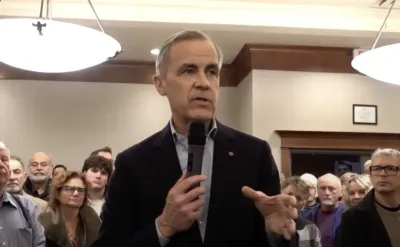Archbishop Sviatoslav Shevchuk reminded Americans that Russia is persecuting Christians in occupied Ukraine, where the Ukrainian Greek Catholic Church ‘has been declared illegal.’
(LifeSiteNews) — The Major Archbishop of Kiev on Monday declared his opposition to any Russian ceasefire in Ukraine that would leave people under occupation and religious persecution.
In an address at the Ecumenical Prayer for Peace in Ukraine held in the Cathedral Basilica of Saints Peter and Paul in Philadelphia, Archbishop Sviatoslav Shevchuk, who is the head of the Ukrainian Greek Catholic Church (UGCC), reminded listeners that Russia is oppressing and persecuting Christians in occupied Ukraine.
“For 45 years, our Church survived underground, hidden in the catacombs. History has shown that every time Russia occupies Ukraine, our Church faces persecution and attempts at eradication,” he said. “Today is no exception. The Ukrainian Greek Catholic Church has been declared illegal in the territories of eastern Ukraine that are temporarily occupied by Russia.”
“At this very moment, our faithful are once again forced into the catacombs, without access to a Catholic priest, deprived of the sacraments, and left to practice their faith in secrecy,” the archbishop shared before Roman Catholic bishops from Pennsylvania, UGCC bishops, and the lay Catholic attendees.
In September, Sviatoslav shared at the St. Michael’s Annual Reception in Berlin, “Almost all our parishes have been destroyed, churches and monasteries have been seized and their property confiscated.”
U.S. President Donald Trump has recently begun peace talks with Russian President Vladimir Putin, by which Trump hopes to negotiate an end to the war in Ukraine. However, Trump has acknowledged that Putin holds leverage “because they've taken a lot of territory,” and U.S. Defense Secretary Pete Hegseth has also recently cautioned that Ukraine will not return to its borders before 2014, when Russia annexed Crimea.
Sviatoslav warned Monday that any ceasefire that continues Russian occupation of parts of Ukraine would be a false peace, considering the religious oppression that would presumably continue.
“But a ceasefire is not peace, and a political deal cannot bring justice,” Sviatoslav said. “A truce that leaves people suffering under occupation is a cruel mockery. Without justice, peace is impossible – it becomes an illusion, a hollow promise.”
A 2023 State Department report on occupied Ukraine included testimony about the severe religious persecution inflicted on Ukrainians by Russia’s forces:
In an appeal to participants in a January 17 U.N. Security Council meeting, the country’s Orthodox, Greek and Roman Catholic, Protestant, Muslim, and Jewish leaders issued a joint statement that, “(t)he war has brought enormous suffering to these people, with the people’s freedom, their religious beliefs having effectively become the initial target of the Russian occupiers. In 11 months, they destroyed or ransacked more than 270 churches and sacred buildings (and) killed and tortured to death dozens of clergymen. Wherever Russia comes, religious freedom ends.”
“Where Russia is, they torture ‘wrong’ Orthodox Christians, mock Catholics, imprison Muslims for religious beliefs for terms unthinkable even in Soviet times, force Protestants to flee abroad from inevitable repressions and persecute Jehovah’s Witnesses.” The religious leaders called on the international community “to help Ukrainians resist the Russian invasion, which brings death, slavery, darkness and religious oppression.”
Russian occupation forces have also banned Catholic ministries, including the Knights of Columbus and the Catholic Caritas organization.
While the Russians have banned the UGCC and other Ukraine-affiliated organizations and destroyed many churches, the Ukrainian government has engaged in similar crackdowns during the war.
In March 2023, the United Nations’ Office of the High Commissioner for Human Rights (OHCHR) criticized the Ukrainian government for raiding the properties of the Ukrainian Orthodox Church (UOC) and arresting some of its clergy due to the church’s former official ties to the Patriarchate of Moscow.
Ukraine’s Parliament also approved a ban on activities of religious groups that support Russia’s invasion of Ukraine or are tied to the Russian Orthodox Church. The ban is seen as targeting the UOC, which the Ukrainian regime still considers an ally of the Russian Orthodox Church despite the UOC declaring its independence from the Patriarchate of Moscow in 2022.

